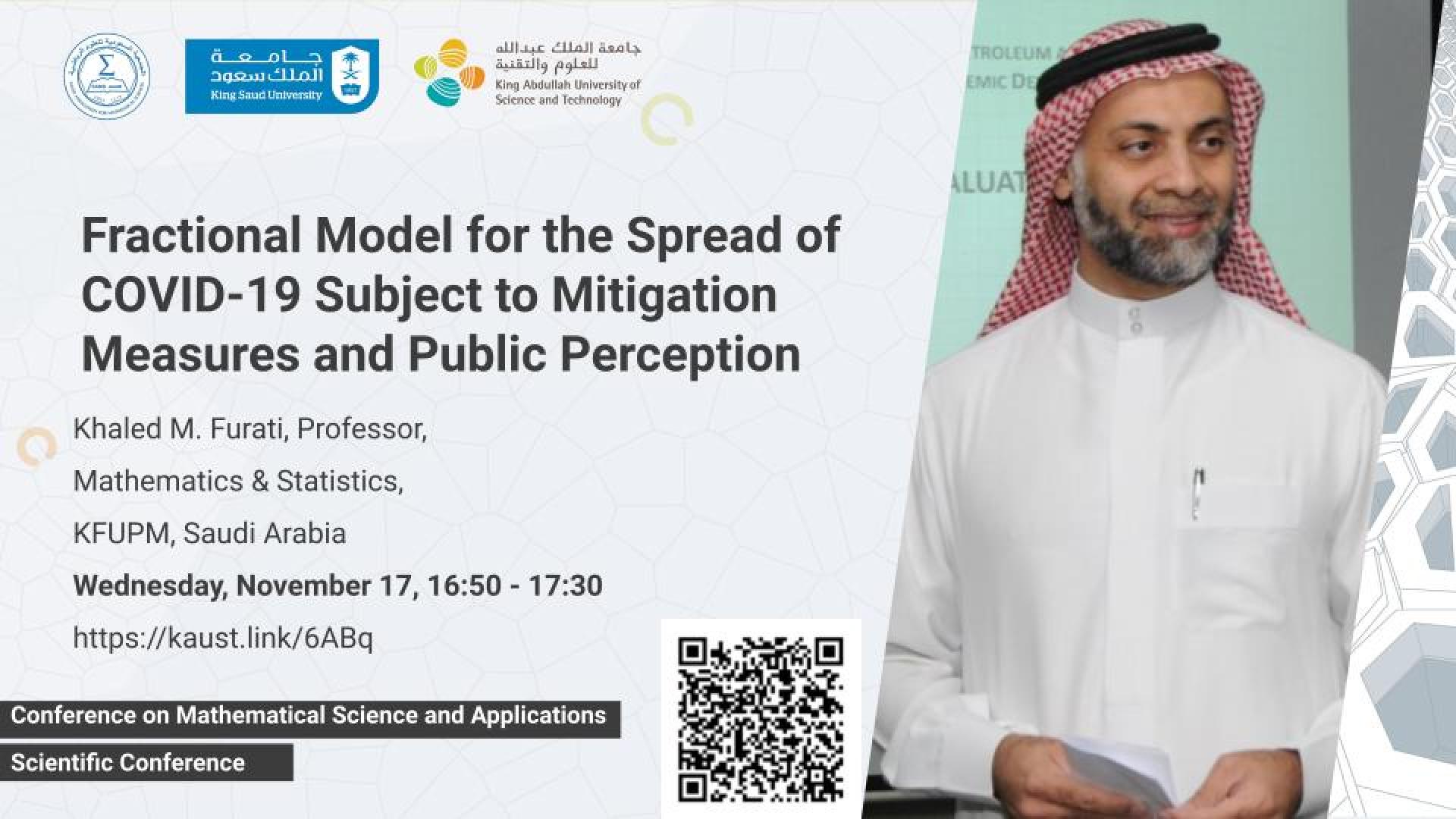Abstract
Since the outbreak of COVID-19, there have been concerted efforts to monitor, predict, and control the spread of this disease. Among these efforts is the development of mathematical models that could capture accurately the available data and simulate closely the futuristic scenarios. In this talk, a fractional-order memory-dependent model for simulating the spread of COVID-19 is presented. In this model, the impact of governmental interventions and public perception are incorporated in the transmission rate. An algorithm for approximating the optimal values of the fractional order and strength of governmental interventions is provided.
We show that the presented fractional model is suitable for capturing the data and consequently reliable for future predictions. The COVID-19 outbreak in Saudi Arabia is considered as a case study.
Brief Biography
Khaled Furati is a professor of Mathematics at KFUPM. He received his Ph.D degree in Mathematics from Duke University, NC, USA, in 1995 and since then he joined the Department of Mathematics and Statistics at KFUPM. He served as Chairman of the Math Department during 2000-2004, Director of Testing and Evaluation Center during 2010-2014, and a member of the Scientific Council since 2016.
Dr. Furati worked on models for two-phase flow in porous media and singular Sturm-Liouville problems. His current research interests include fractional differential equations and their applications and computational methods. Among the funded research projects he has conducted are: fractional order neural networks, asymptotic behaviour and well posedness of solutions for fractional differential equations, inverse source problems for fractional diffusion equation, higher-order numerical methods for nonlinear space-fractional diffusion equations, and characterization of fractures effects using non-Darcy-Flow fractional models.
